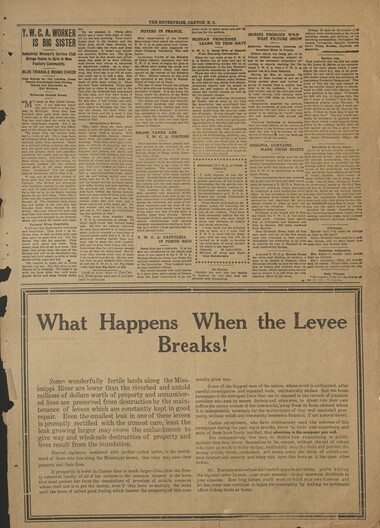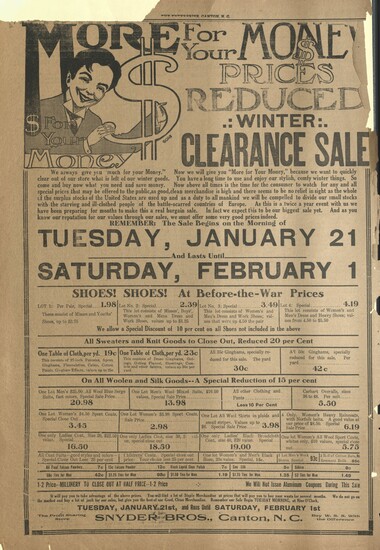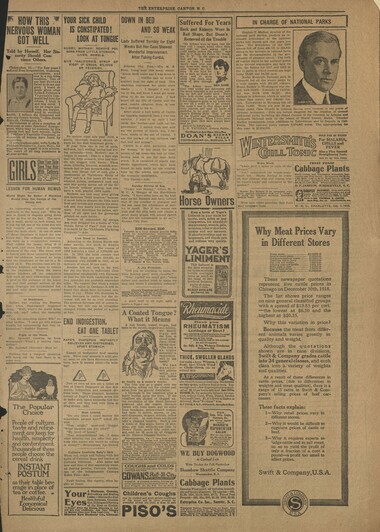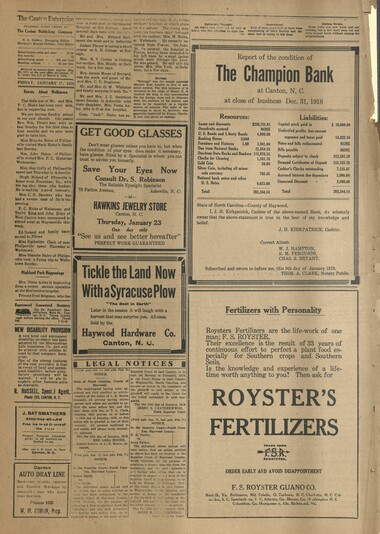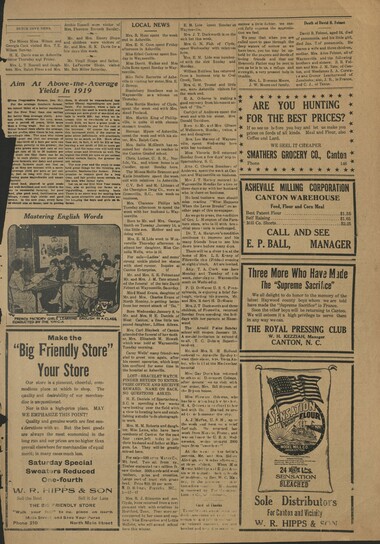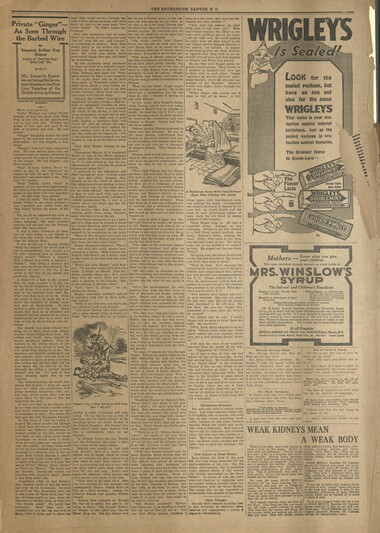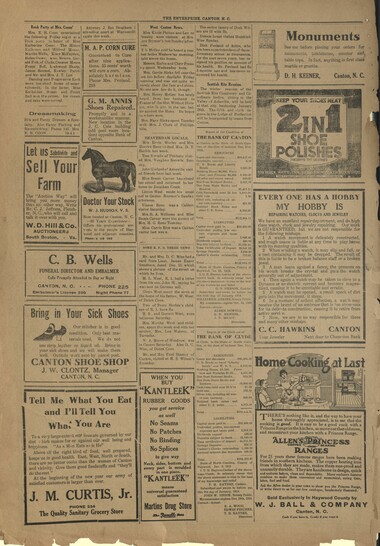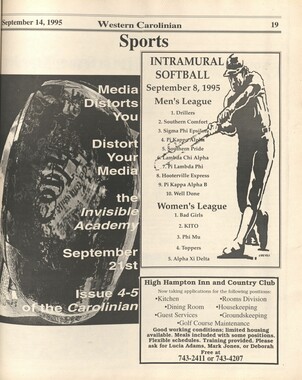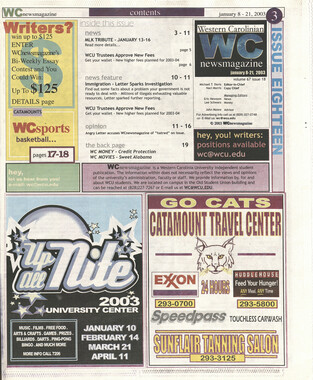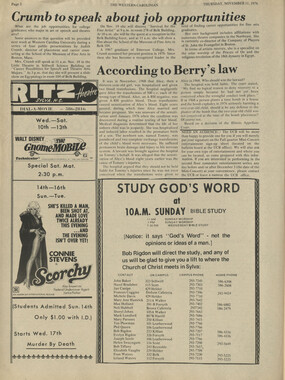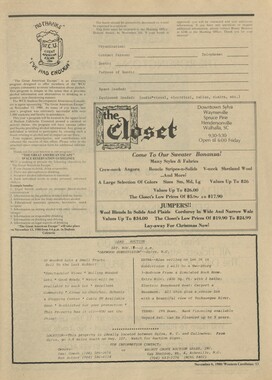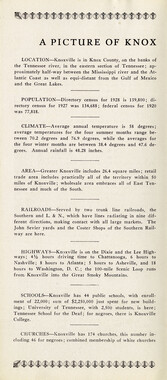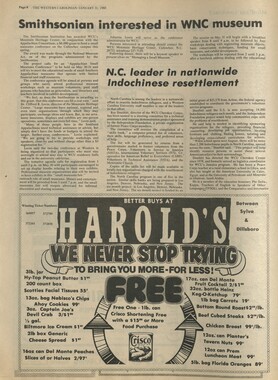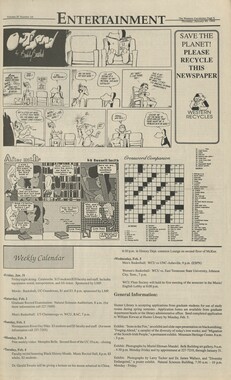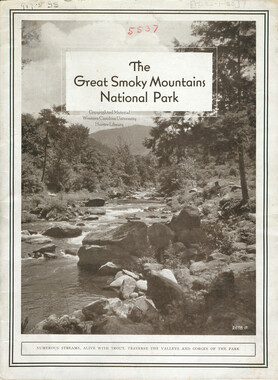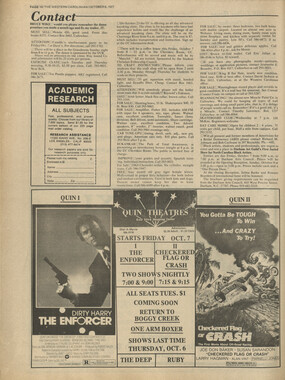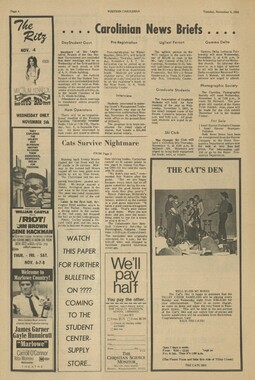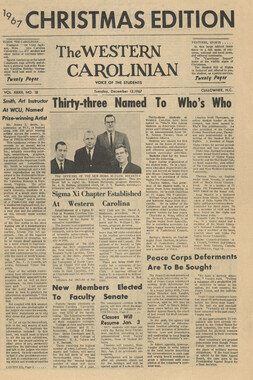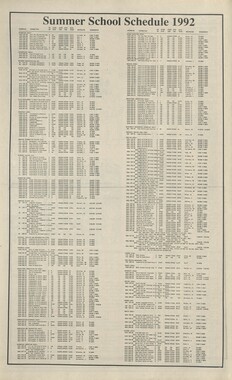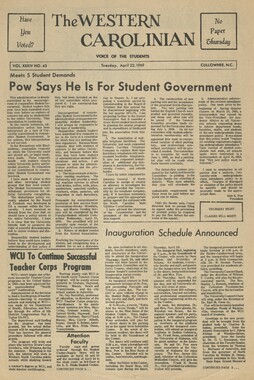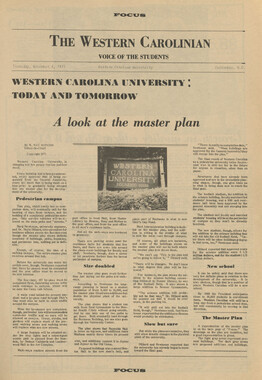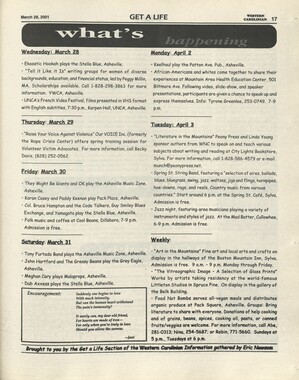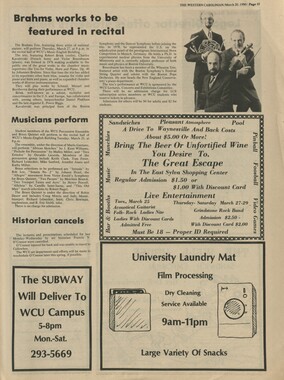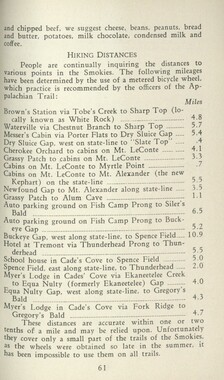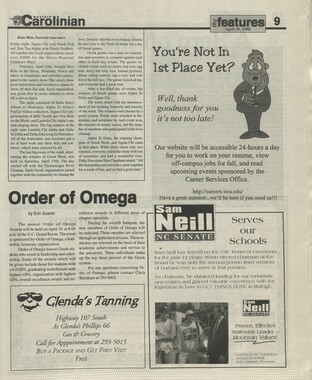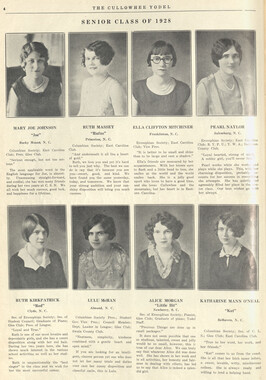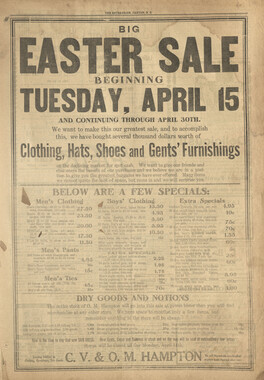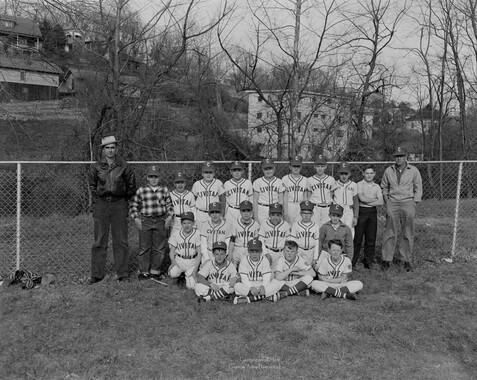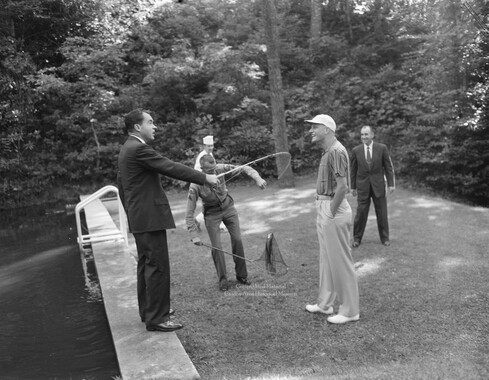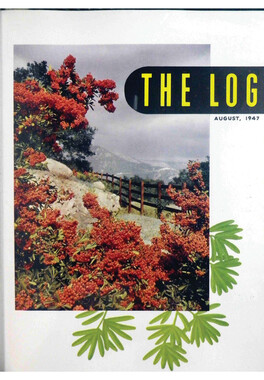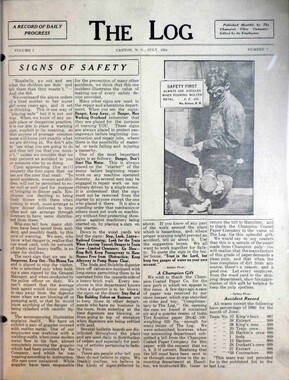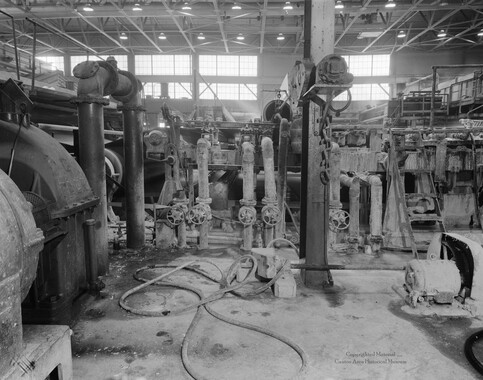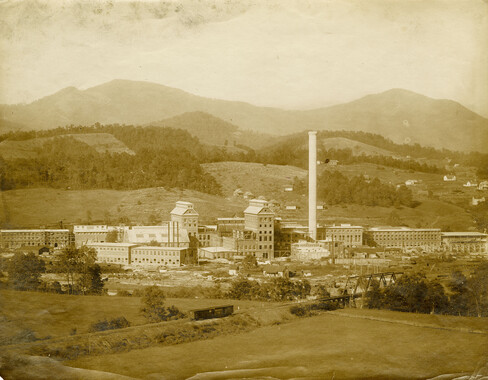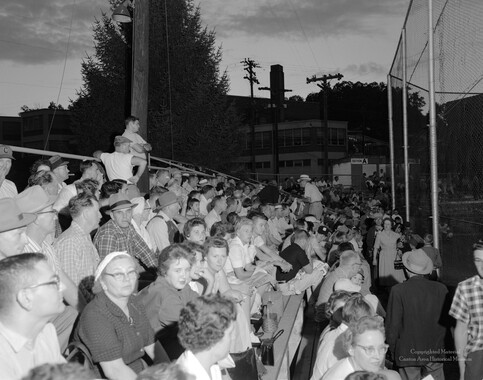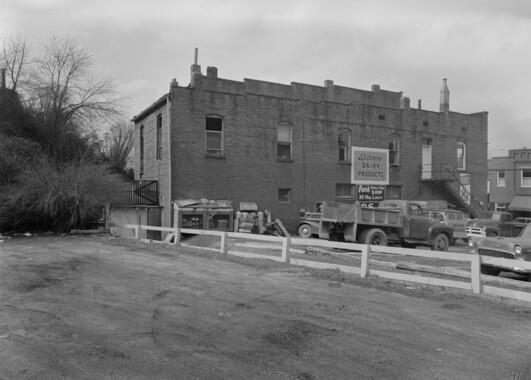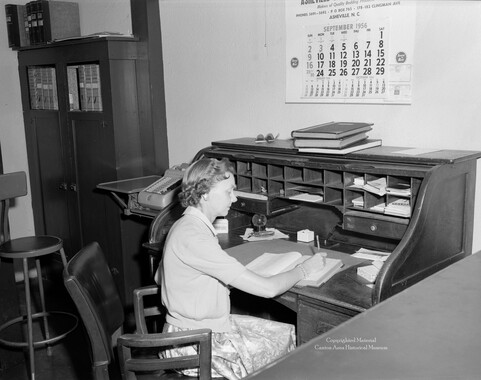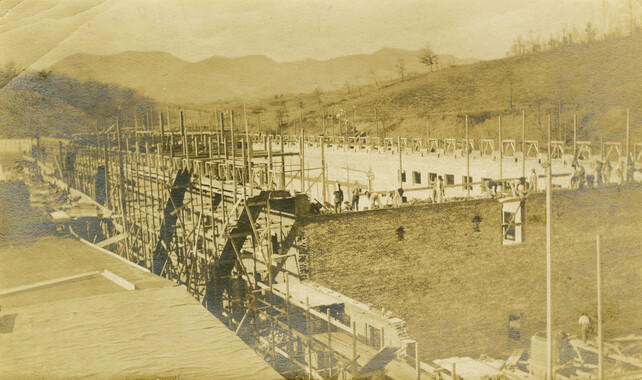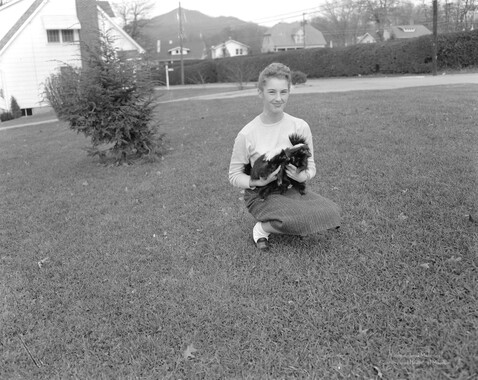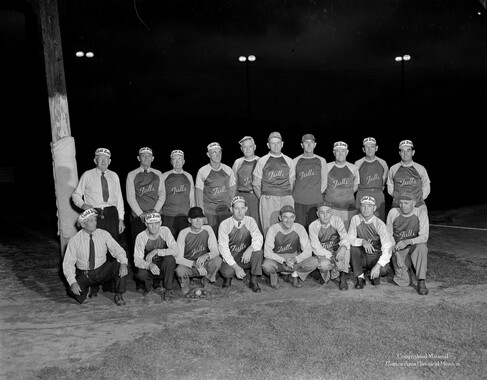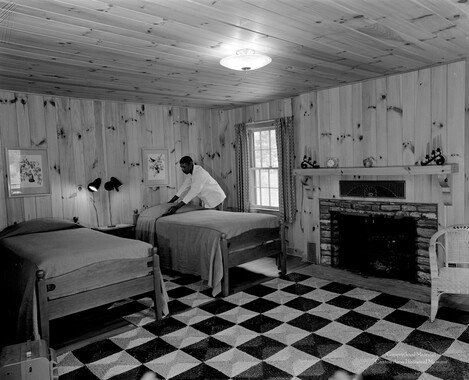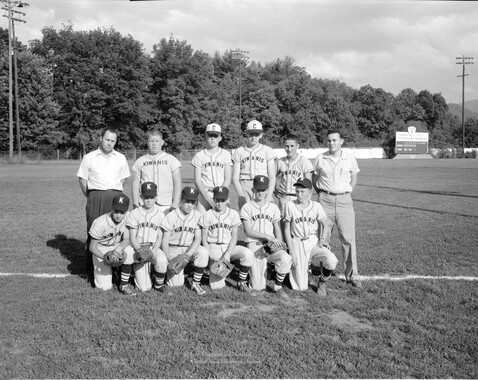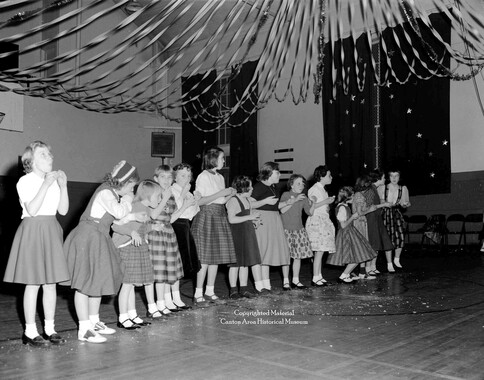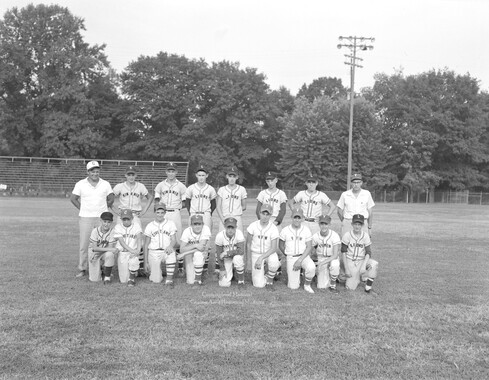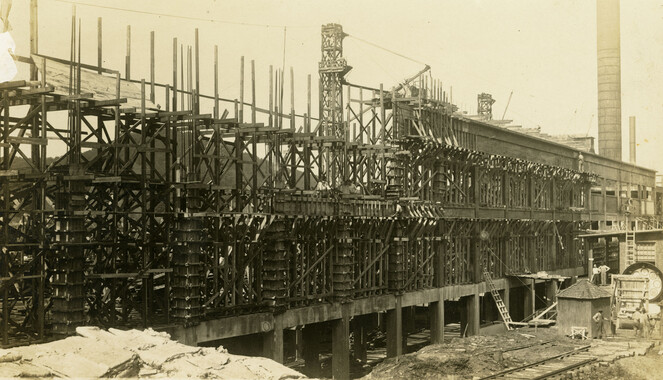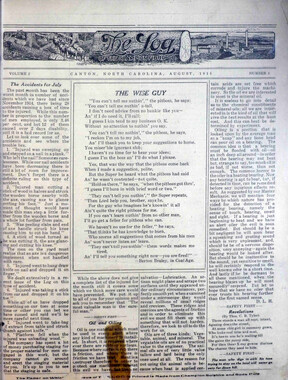Western Carolina University (20)
View all
- Canton Champion Fibre Company (2308)
- Cherokee Traditions (292)
- Civil War in Southern Appalachia (165)
- Craft Revival (1942)
- Great Smoky Mountains - A Park for America (2766)
- Highlights from Western Carolina University (430)
- Horace Kephart (941)
- Journeys Through Jackson (154)
- LGBTQIA+ Archive of Jackson County (81)
- Oral Histories of Western North Carolina (314)
- Picturing Appalachia (6772)
- Stories of Mountain Folk (413)
- Travel Western North Carolina (160)
- Western Carolina University Fine Art Museum Vitreograph Collection (129)
- Western Carolina University Herbarium (92)
- Western Carolina University: Making Memories (708)
- Western Carolina University Publications (2283)
- Western Carolina University Restricted Electronic Theses and Dissertations (146)
- Western North Carolina Regional Maps (71)
- World War II in Southern Appalachia (131)
University of North Carolina Asheville (6)
View all
- Champion Fibre Company (228)
- Champion Paper and Fibre Company (297)
- Allanstand Cottage Industries (0)
- Appalachian National Park Association (0)
- Bennett, Kelly, 1890-1974 (0)
- Berry, Walter (0)
- Brasstown Carvers (0)
- Cain, Doreyl Ammons (0)
- Carver, George Washington, 1864?-1943 (0)
- Cathey, Joseph, 1803-1874 (0)
- Cherokee Indian Fair Association (0)
- Cherokee Language Program (0)
- Crittenden, Lorraine (0)
- Crowe, Amanda (0)
- Edmonston, Thomas Benton, 1842-1907 (0)
- Ensley, A. L. (Abraham Lincoln), 1865-1948 (0)
- Fromer, Irving Rhodes, 1913-1994 (0)
- George Butz (BFS 1907) (0)
- Goodrich, Frances Louisa (0)
- Grant, George Alexander, 1891-1964 (0)
- Heard, Marian Gladys (0)
- Kephart, Calvin, 1883-1969 (0)
- Kephart, Horace, 1862-1931 (0)
- Kephart, Laura, 1862-1954 (0)
- Laney, Gideon Thomas, 1889-1976 (0)
- Masa, George, 1881-1933 (0)
- McElhinney, William Julian, 1896-1953 (0)
- Niggli, Josephina, 1910-1983 (0)
- North Carolina Park Commission (0)
- Osborne, Kezia Stradley (0)
- Owens, Samuel Robert, 1918-1995 (0)
- Penland Weavers and Potters (0)
- Rhodes, Judy (0)
- Roberts, Vivienne (0)
- Roth, Albert, 1890-1974 (0)
- Schenck, Carl Alwin, 1868-1955 (0)
- Sherrill's Photography Studio (0)
- Smith, Edward Clark (0)
- Southern Highland Handicraft Guild (0)
- Southern Highlanders, Inc. (0)
- Stalcup, Jesse Bryson (0)
- Stearns, I. K. (0)
- Thompson, James Edward, 1880-1976 (0)
- United States. Indian Arts and Crafts Board (0)
- USFS (0)
- Vance, Zebulon Baird, 1830-1894 (0)
- Weaver, Zebulon, 1872-1948 (0)
- Western Carolina College (0)
- Western Carolina Teachers College (0)
- Western Carolina University (0)
- Western Carolina University. Mountain Heritage Center (0)
- Whitman, Walt, 1819-1892 (0)
- Wilburn, Hiram Coleman, 1880-1967 (0)
- Williams, Isadora (0)
- 1890s (9)
- 1900s (110)
- 1910s (131)
- 1920s (127)
- 1930s (153)
- 1940s (187)
- 1950s (952)
- 1960s (291)
- 1970s (7)
- 1980s (1)
- 1600s (0)
- 1700s (0)
- 1800s (0)
- 1810s (0)
- 1820s (0)
- 1830s (0)
- 1840s (0)
- 1850s (0)
- 1860s (0)
- 1870s (0)
- 1880s (0)
- 1990s (0)
- 2000s (0)
- 2010s (0)
- 2020s (0)
- Appalachian Region, Southern (8)
- Asheville (N.C.) (17)
- Buncombe County (N.C.) (30)
- Cherokee County (N.C.) (10)
- Great Smoky Mountains National Park (N.C. and Tenn.) (3)
- Haywood County (N.C.) (2148)
- Henderson County (N.C.) (1)
- Jackson County (N.C.) (8)
- Macon County (N.C.) (1)
- Qualla Boundary (6)
- Swain County (N.C.) (6)
- Transylvania County (N.C.) (1)
- Waynesville (N.C.) (13)
- Avery County (N.C.) (0)
- Blount County (Tenn.) (0)
- Clay County (N.C.) (0)
- Graham County (N.C.) (0)
- Knox County (Tenn.) (0)
- Knoxville (Tenn.) (0)
- Lake Santeetlah (N.C.) (0)
- Madison County (N.C.) (0)
- McDowell County (N.C.) (0)
- Mitchell County (N.C.) (0)
- Polk County (N.C.) (0)
- Rutherford County (N.C.) (0)
- Watauga County (N.C.) (0)
- Yancey County (N.C.) (0)
- Aerial Views (5)
- Cards (information Artifacts) (2)
- Clippings (information Artifacts) (16)
- Envelopes (1)
- Manuscripts (documents) (5)
- Maps (documents) (1)
- Negatives (photographs) (1514)
- Newsletters (519)
- Photographs (161)
- Portraits (6)
- Postcards (9)
- Publications (documents) (43)
- Slides (photographs) (41)
- Aerial Photographs (0)
- Albums (books) (0)
- Articles (0)
- Artifacts (object Genre) (0)
- Bibliographies (0)
- Biography (general Genre) (0)
- Crafts (art Genres) (0)
- Depictions (visual Works) (0)
- Design Drawings (0)
- Drawings (visual Works) (0)
- Facsimiles (reproductions) (0)
- Fiction (general Genre) (0)
- Financial Records (0)
- Fliers (printed Matter) (0)
- Glass Plate Negatives (0)
- Guidebooks (0)
- Internegatives (0)
- Interviews (0)
- Land Surveys (0)
- Letters (correspondence) (0)
- Memorandums (0)
- Minutes (administrative Records) (0)
- Newspapers (0)
- Occupation Currency (0)
- Paintings (visual Works) (0)
- Pen And Ink Drawings (0)
- Periodicals (0)
- Personal Narratives (0)
- Plans (maps) (0)
- Poetry (0)
- Programs (documents) (0)
- Questionnaires (0)
- Scrapbooks (0)
- Sheet Music (0)
- Songs (musical Compositions) (0)
- Sound Recordings (0)
- Specimens (0)
- Speeches (documents) (0)
- Text Messages (0)
- Tintypes (photographs) (0)
- Transcripts (0)
- Video Recordings (physical Artifacts) (0)
- Vitreographs (0)
- Canton Area Historical Museum (2110)
- Hazel Scarborough Collection (1)
- Norburn - Robertson - Thomson Families Collection (22)
- A.L. Ensley Collection (0)
- Appalachian Industrial School Records (0)
- Appalachian National Park Association Records (0)
- Axley-Meroney Collection (0)
- Bayard Wootten Photograph Collection (0)
- Bethel Rural Community Organization Collection (0)
- Blumer Collection (0)
- C.W. Slagle Collection (0)
- Carlos C. Campbell Collection (0)
- Cataloochee History Project (0)
- Cherokee Studies Collection (0)
- Daisy Dame Photograph Album (0)
- Daniel Boone VI Collection (0)
- Doris Ulmann Photograph Collection (0)
- Elizabeth H. Lasley Collection (0)
- Elizabeth Woolworth Szold Fleharty Collection (0)
- Frank Fry Collection (0)
- George Masa Collection (0)
- Gideon Laney Collection (0)
- Hiram C. Wilburn Papers (0)
- Historic Photographs Collection (0)
- Horace Kephart Collection (0)
- Humbard Collection (0)
- Hunter and Weaver Families Collection (0)
- I. D. Blumenthal Collection (0)
- Isadora Williams Collection (0)
- Jesse Bryson Stalcup Collection (0)
- Jim Thompson Collection (0)
- John B. Battle Collection (0)
- John C. Campbell Folk School Records (0)
- John Parris Collection (0)
- Judaculla Rock project (0)
- Kelly Bennett Collection (0)
- Love Family Papers (0)
- Major Wiley Parris Civil War Letters (0)
- Map Collection (0)
- McFee-Misemer Civil War Letters (0)
- Mountain Heritage Center Collection (0)
- Pauline Hood Collection (0)
- Pre-Guild Collection (0)
- Qualla Arts and Crafts Mutual Collection (0)
- R.A. Romanes Collection (0)
- Rosser H. Taylor Collection (0)
- Samuel Robert Owens Collection (0)
- Sara Madison Collection (0)
- Sherrill Studio Photo Collection (0)
- Smoky Mountains Hiking Club Collection (0)
- Stories of Mountain Folk - Radio Programs (0)
- The Reporter, Western Carolina University (0)
- Venoy and Elizabeth Reed Collection (0)
- WCU Gender and Sexuality Oral History Project (0)
- WCU Mountain Heritage Center Oral Histories (0)
- WCU Oral History Collection - Mountain People, Mountain Lives (0)
- WCU Students Newspapers Collection (0)
- Western North Carolina Tomorrow Black Oral History Project (0)
- William Williams Stringfield Collection (0)
- Zebulon Weaver Collection (0)
- African Americans (2)
- Artisans (1)
- Cherokee women (2)
- Church buildings (33)
- Dams (3)
- Dance (23)
- Education (115)
- Floods (6)
- Forest conservation (200)
- Forests and forestry (46)
- Great Smoky Mountains National Park (N.C. and Tenn.) (6)
- Hunting (6)
- Logging (8)
- Paper industry (32)
- Postcards (6)
- Railroad trains (14)
- Sports (429)
- Wood-carving -- Appalachian Region, Southern (1)
- World War, 1939-1945 (42)
- Appalachian Trail (0)
- Cherokee art (0)
- Cherokee artists -- North Carolina (0)
- Cherokee language (0)
- Cherokee pottery (0)
- Civilian Conservation Corps (U.S.) (0)
- College student newspapers and periodicals (0)
- Folk music (0)
- Forced removal, 1813-1903 (0)
- Gender nonconformity (0)
- Landscape photography (0)
- Maps (0)
- Mines and mineral resources (0)
- North Carolina -- Maps (0)
- Pottery (0)
- Rural electrification -- North Carolina, Western (0)
- School integration -- Southern States (0)
- Segregation -- North Carolina, Western (0)
- Slavery (0)
- Storytelling (0)
- Waterfalls -- Great Smoky Mountains (N.C. and Tenn.) (0)
- Weaving -- Appalachian Region, Southern (0)
- StillImage (1725)
- Text (584)
- MovingImage (0)
- Sound (0)
The Canton Enterprise Volume 13 Number 03
Item
Item’s are ‘child’ level descriptions to ‘parent’ objects, (e.g. one page of a whole book).
-
-
THE ENTERPRISE, CANTON, N. C. Y.W.C. A. WORKER IS BIGJISTER Industrial Woman's Service Club Brings Home to Girls in New Factory Community. BLUE TRIANGLE MEANS CHEER Club 8Und» for Hot Lunches, Cleat* Towel*, Comfortable Cots, Parties, Game* and Recreation to Girl Worker*. Katherlno Holland Brown. m "Y name la May Isabel Carna- han. I am eighteen years old, and I work in a big fac- jtory in Michigan. More than tour hundred other girls work there too. I don't aim to tell you about our jobs. Ton can read about our work in the labor department reports. But I do 'aim to tell you about our Big Sister land of the things she has done for us. "To begin with, our factory town -Isn't a town at all. It's a huge barn .of buildings stuck down In the country nineteen miles from nowhere. There Is a railroad siding, a station the size of a dry goods box. seven farmhouses land one general store and postofflee [combined—It's pretty near as big as a Ihnt tnmale stand. And that's all. No Main street, no banks nor stores, no dee-cream parlors, not one solitary imovie show, In all those nineteen -miles. Lonesome? It's the ragged (;edge of desolation, that's what it is. "I was one of the first carload of forty girls that was shipped up from 'Chicago. The factory was swarming ■with workmen putting in the machinery, and we girls couldn't begin work for a day or so, so we began bunting places to eat and sleep. That wds a trifle that the employment folks hadn't [thought of. The workmen were sleeping and eating In the cars that had jbrought them there, backed on the [siding. Our only chance for beds and (food was with those seven farmhouses, [so we marched straight to the farmers' •wives and asked for board and room. Farmers' Wives Hospitable. | -"Twill say that those women were kind jand hospitable. They fixed it up be- itween them to feed us forty girls, and 'they gave us good food too. But for [rooms, that was the question. They icould each spare one room. That [meant sleep five or six in a room. But [right then along came the boss of the ifactory and told us the machinery was (ready and he'd expect us girls to work [double shifts, night and day. ^ "He wanted to make use ci erary 'minute, you see. But that g»va us our [chance as to sleeping. We fixed it up jwlth the farm folks that we'd work double shifts and sleep double shifts too. "So we planned It Three girls would use a room from eight at night till six the next moraine. Then they'd hustle over to the factory, and the three girls who'd been working all night, would take the room and sleep till afternoon. It wasn't any luxurious slumber, believe me. The farm women had so few sheets and pi'low eases that moat of us went without And towela were scarce as diamonds on blackberry bushes. As to soap— well, the general store kept yellow bar soap, that kind that is so full of rosin you could use It to calk a ship. Bat we made out till the next three carloads of girls came rolling In. Then we went 'most distracted. Those poor girls had to sleep In tents and in the cars that the workmen had abandoned by this time, and they were lucky if they got a straw tick and a blanket. By this time It had turned raw cold, and maybe you know what late autumn nights in Michigan feel like.. To cap the climax the farm folks cut down on food, nnd for a week It was potatoes and beans and mighty few beans at that Along Came a Miracle. "But, right when we were nboul ready to quit our jobs and beat It for home, along came a miracle. Two quiet, businesslike women climbed down from the eastbound train one morning. With them came eight workmen, a carload of scantling and tar paper, another carload of cots and blankets and pillows and sheets and towels—brand new blankets and beds —think of the glory of that!—and bushels of dishes and rolls of oilcloth and enough burlap to carpet the country. You won't believe me when I tell you that in ten days their workmen had a scantling-and-tnr-paper shack put up and burlap tacked over the walls, and the Y. W. C. A. secretary and her helper had set up board tables and coffee kettles and were serving us the grandest hot lunches every day. And back behind the burlap scrtens were fcet those rows of clean cots, with enough cover to keep you warm the coldest night that ever blew, and a towel apiece for every single girl. Do you wonder that we all felt, as one girl put it, 'I'll wager the Fritz-Carle- ton has nothing on this!' "Who were those women? Why, Y, W. C. A. secretaries, of course. I'd think you'd know that without being told. All over the country wherever we girls have pitched in to make aeroplane cloth or overalls or munitions or canned goods you'll find a Y. W. O. A. secretary working harder than any. body else to make the girls comfortable and to keep them happy and well. Sometimes they ha\ en't money enough to get all that we really need. But always they stretch every cent to make it do its level best for us. Do you wonder thnt we girl workers have learneti to call the Y. W. C. A our Big Sister —the very best Big Sister of allV FOYERS IN FRANCE. •four departments of tho French Government have asked the American Y. W. C. A to open social and recreation centers for girls employed by them—Finance, Commerce, War and Labor. Lieutenant Poncet of the Ministry of Labor recently requested that this Y. W. C. A work be begun for girls In his offices after seeing the social and recreation centers which had been opened at tbe request of the Ministry of War. Sixteen centers of this kind are operated In six cities in France. Three of them are In Paris. The last of these Foyers des Alltees is for girls who are working in the Department of Labor. It Is far down the Seine, under the shadow of the Eiffel Tower, and overlooks the Qual d'Orsay. The rooms are bright and cheerful, with chintz hangings and cushions, comfortable chairs, reading and writing tables and a fireplace. A kitchen has equipment so that girls can prepare meals for themselves. They go to the foyer for their two hour luncheon time, for social evenings and for classes In English. every week to mend socks and sew on buttons for the soldiers. RUSSIAN PRINCESSES LEARN TO TRIM HATS NURSES PRODUCE WILD WEST PICTURE SHOW Y. W. C. A. Saves Wife of General From Becoming Charwoman. When the war work of tbe Y. W. CL A. In Russia has all been told one of any of the necessary properties, ac- Eiitortaln Roumanian Counteaa at American Show In Franca. Picture shows are being pnt on In France without cameras, scenery or During 15 daya W November 2.19F visitors were entertained at the housa Including women and children, of thf following nationalities; Phllippino, Ha wallnn, Vortuguese, Spanish, Russian, Porto Rlcan, Korean, Japanese as* American. . ii n «ms- iiT"———' 400,000 YANKS ARE Y. W. C. A. VISITORS Four hundred thousand persons and more served In the cafeteria in one year is the record of the Y. W. C. A. Hostess House at Camp Lewis, American Lake, Wash. The majority of the 409,000 diners were mothers, wives, sweethearts and friends who went to tie camp to visit their soldiers. The remainder were soldiers themselves who broke the monotony of "chow" with home cooked meals. In addition to all these guests, 25,000 little children were cared for In the nursery and the rest room served 70,000 tired wives and mothers. The workers at the information desk received and answered 97,000 questions varying from how to get the best connections to a destination clear' across the continent, the rates of soldiers' insurance and the kind of cretonne a girl bride should have in her living room now that Private John Is coming home from France. Eleven thousand of these queries required telephone conversations with various company commanders relative to hunting up a soldier whose parents had ar. rived unexpectedly. Barrio's Hat I am reminded that the silk hat worn the most interesting stories will lie in cording to reports reaching tbe Na- by Sir James M. Berrie at the rehearo- Uonal Y. W. a A from « Y. W. C. A. nls of his early plays, which I men- aurees' hat la a Base Hospital tloned the other day, was in all prob- Havlng n«< Sim or camera, th* ability the one which was acquired la nurses at Base decided to put on a still earlier years with the Intention of living pictare show and invited a Impressing Frederick Greenwood. The group of nurse, from a nearby hoa- ?*ory of tw" tn" nat WM r?at*d «* Pital to be the audience. It was a ^l??™™* ^TV ft? i° ,t^ roal thriller, one of the wild and wool- ™* ln *'**' with John Morley theu ly west variety, with bucking brou. Quite untitled, in the chair. "I bought chees and wHd rides on broom and m>r fl,rat 8l,k ,mt* to Unpreas hlm- *** mop horses "uy CIU,>" to London," said the die- Imagination supplied the scenery. tlnS»ls»".d pilgrim from Thrums. "1 It was a problem to find where the ««th the exception of placards, which °* v,*f w°r" " ™* **«i -C made pe- money would help the greatest nu*m- announced "the sun" when It was sup- rtjto ^M«» oMbe *•*• »«"■* <jj- posed to be shining or "cacti" when zette- J llked to tnlnk that lt nad ,ts the cow punchers rode across tha en*ePt "P0" nim*" The h,lt would nat* desert urally be treasured on grounds other Countess Vacaresea of Roumania, tnan those which would suggest them- who had been talking to the nurses on solves to the ordinary thrifty Scot—it conditions In the German courts at the nad opened out to him a great liter- to the Association for sale or take or- time she was lndy-ln-waiting to the «"? career, and It might be expected to ders to dw dressmaking, millinery, etc., Q'leen of Rouman*, was the most ap> nave lts natural beneficent influence on in the rooms of the society or at home, preciatlve of all the guests. the plays.—Westminster (Eng.) Ga zette. the establishment of the first Women's Co-operative Association at Moscow. There day after day princesses work aide by aide with peasant girls, wives of hlfih Russian officials make dreases or trim hats at long tablea with simple, unlettered women, and tbe money ia used for self support of these princesses and notable women aa well aa for the peasant classes. The need and suffering throughout all Russia was so greet at the time the Association was established that ber of people. It was thought best to expend It to help capitalize organizations for giving work and permanent opportunities to families and individuals to earn their own living. The women bring their handiwork Suitable work was found just In time not long sgo to keep the wife of one of Russia'.", greatest generals from going put as a charwoman to earn bread for her lu'simnd. who was 111. INSIGNIA, CURTAINS, MADE FROM SKIRTS MESSAGE TO Y. W. C. A. FROM FRANCE. Y. W. C. A. CAFETERIA IN PORTO RICO Look at your Jabie on The Can ton Enterprise and see if you are paid in advance. Porto Rico has n cafeteria. It is the first one established on the Island, and when it was opened in the Y. W. C. A. Hostess House at Camp Las Casas the natives crowded around, much amused at the innovation. They insisted upon having American dishes. j The house became very well known In a short time, and a group of women from San Juan volunteered to go out ****** ************* tt fc ft ft ft ft ft ft ft ft ft * * * * * * • * * * • * * • * * * * * * Something to Worry About As if we haven't already enough to keep our minds busy, with war and the Blue broadcloth skirts used for or* high cost of living! And our friends, I must express to you the very great satisfaction nnd most sincere gratitude of the French Government for the service rendered to the women working in Government factories through the establishment of Y. W. C. A. Foyers' des Alliees (clubrooms for munltionettes). These foyers have been an excellent means for bettering the physical conditions and the morale of our workers. They have been constantly used by the women workers, who have found there new elements of dignity and social education. I must thank you for bringing this to pass, ai.J I hope that Y. W. C. A. work will not disappear with the war, but will be carried on in order to develop the principles of social solidarity which It has tnspired. (Signed) M. LOUCHER, Minister of Arms and Munitions Manufacture. * * * * * * * * * • * * * •ft * * * * * average fellow does the innermost recesses of his pocketbook day before pay, are intent upon adding to our load ot worry burdens. They—some of ganlzation insignia and plaid summei the learned astronomers, who study dresses reconstructed into window cur. ttie heavens jus tains are after war economies of the nine Y. W. C. A. secretaries in Archangel, Russia. These secretaries have just succeed- tnem—DeUeve the sun Ts going to ex- ed, in the face of food and cloth short- piode. One of them, writing in Popu- ages, in opening a Y. W. C. A. Hostess tar Astronomy, points to the fact that House for American troops stationed our sun is of advanced age, and pre- ln Archangel, a town behind the allied diets its finish as the leading figure lines. It was necessary to hunt up a in any solar system. He finds that our voile summer dress which one of the sun has contracted 92,000,000 miles secretaries had discarded fer heavj from each side, thus giving its ho» cen- wtnter clothes In order to have cur ter 1813,000,000 miles less of room. So tains at the windows. They live ot you see the sun's center is rather regulation army rations. crowded for spaoe. Something like Archangel is the fourth city in Rus the three-room-apartment couple when sla where the Y. W. C. A. has estab visiting relatives begin their summer llshed work. Centers were opened vacation drives.—Syracuse Journal, first in Petrograd and Moscow and then in Samara, 900 miles eastward from Moscow. Diplomacy. Miss Elizabeth Boles, head of Rua Harold—And why must we always sian work and one of the few Ameri t>e kind to the poor? cans who remained in that countrj Doris—Because there may be a sudV throughout the revolution, Is en rout* den change, and we don't know how to America by way of England to re soon they may become rich, cruit workers for Russia. ______________ Righteous Indignation. Mrs. Jones—I wonder what matte* *•*************>*** An Egotist Egotists are men who ore unable to disguise the fact that they are pleased with themselves. A second Y. W. C. A. Hostess House for wives and children of soldiers, ii baby so wakeful. soon to be opened at Castner, Cahu Joes ^savagely)—Why, It's hereil!- Hawaiian Islands, to care for the over tary, of coarse. That's what comes of flow of women and children from th« jtowr sitting up nights waiting for me. first house, which opened some monthi —*-— ago in answer to a call from the com Dally Thought. manding officer of the can-p^ j dk, ^-tent. j 6i0 for tne uterty of ■~gi my cwntrv.'— TV T.iinneo «■_&_■_* What Happens When the Levee Breaks! Som* i wonderfully fertile lands along the Mississippi River are lower than the riverbed and untold millions of dollars worth of property and unnumbered lives are preserved from destruction by the maintenance of levees which are constantly kept in good repair. Even the smallest leak in one of these levees is promptly rectified with the utmost care, least the leak growing larger may cause the embankment to give way and wholesale destruction of property and lives result from the inundation. Eternal vigilance, combined with perfect united action, is the watchword of those who live along the Mississippi levees, that they may save their property and their lives. If prosperity is lower in Canton than in much larger cities.then the firmly cemented loyalty of all of her citizens to the common interest is the levee that must protect her from the inundations of promises of outside concerns whose chief aim is to get the money, even if they have to multiply the leaks until the levee of united good feeling which insures the prosperity of this com munity gives way. Some of the biggest men of the nation, whose word is undisputed, after careful investigation and repeated tests, emphatically declare that the home newspaper is the strongest force that can be opposed to the inroads of plausible outsiders who seek by means devious and otherwise, to divert into their own coffers the money stream of the community/away from its home channel where it is indespensibly necessary for the maintenance of that well nourished prosperity without which any community becomes a financial, if not a moral desert. Caston advertisers, who have continuously used the columns of this newspaper during the past eight months, know by their own experience, and most of them have freely testified, that advertising in this newspaper pays well. But comparatively few men, no matter how enterprising or publie- spirited they may prove themselves to be, cannot, without the aid of others who have as much at stake as they, continually stop th3 leaks and prevent tha money trickle, which, unchecked, will sweep away the levee of united common iuterest and security and bring ruin upon this town as it has upon other towns. Mr. Business-man-whose-isn't-sure-it-pays-to-advertise, you're hslpin? the big mail order houses—your worst enemies—to pay enormous dividends at your expense. How long before you'll work to build yoar own business and let less wiser men continue to injure his community by making no systematic effort to keep trade at home. ; 35_K~ n_£ • •iTr*~Tr*tm«Mi^_iiilwm /
Object
Object’s are ‘parent’ level descriptions to ‘children’ items, (e.g. a book with pages).
-
The Canton Enterprise (19??–1971) was published in Canton, North Carolina by the Canton Publishing Company. Its preceding title was The Canton Observer (circa 1900-), and succeeding title was The Enterprise (1971-1996).
-
